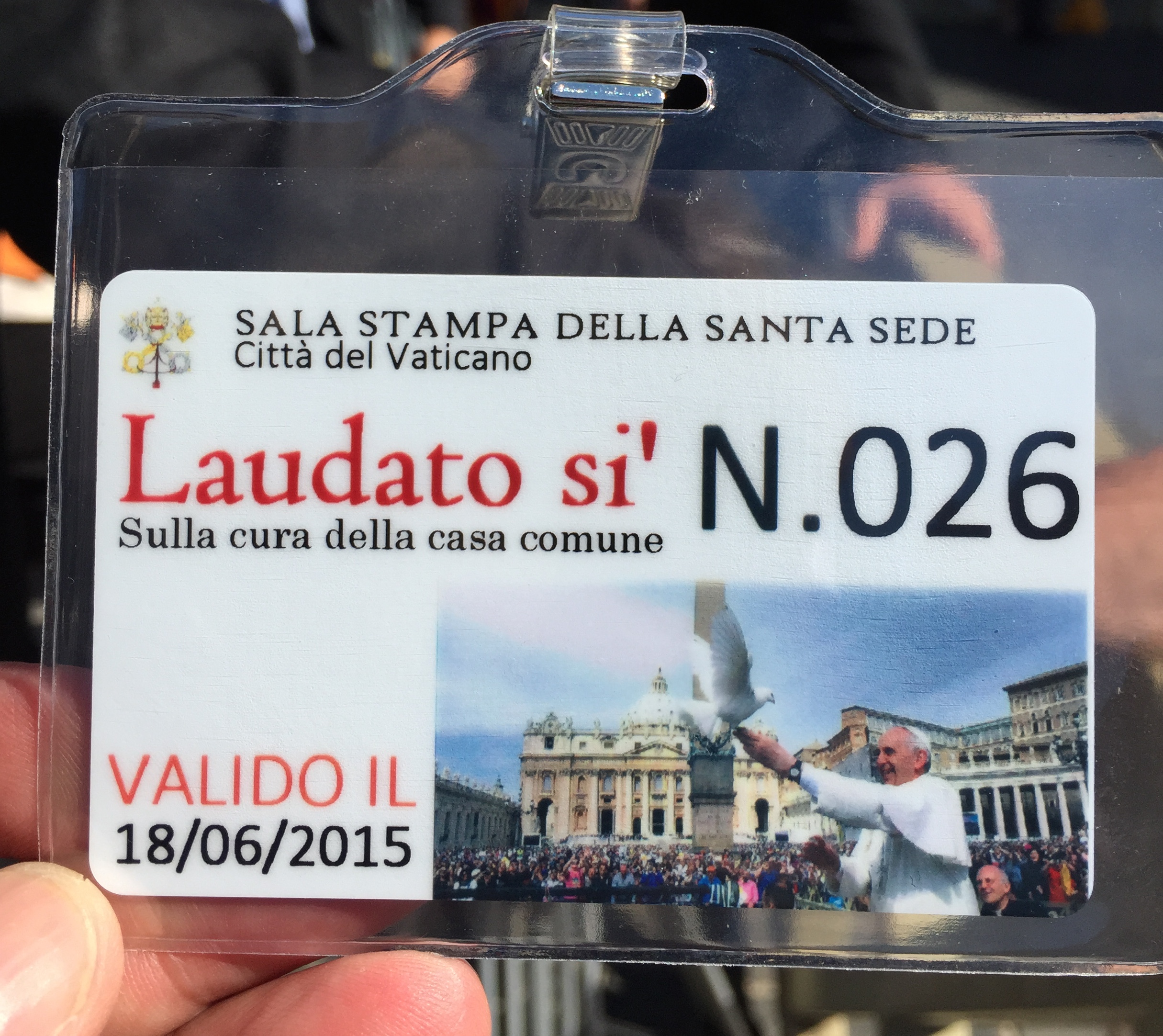
Religion is rarely far from the headlines. With Pope Francis publishing a papal encyclical on the environment, Donald Trump calling for a ban on all Muslims entering the United States, and the Catholic religious order Little Sisters of the Poor involved in Obamacare litigation, faith continues to drive both progress and division in the 21st century. With the goal of putting these and other faith-related current events in perspective, the Pulitzer Center is pleased to announce the release of a new e-book, Religion and the Public Sphere: Case Studies in Hope and Stress.
This e-book presents the discussions held and questions raised during a daylong conference held on April 25, 2016, at Washington University in St. Louis. At the event–hosted by Washington University and the Pulitzer Center, and funded by the Henry Luce Foundation– journalists, academics, and other experts explored how religion influences a wide variety of contemporary global issues.
The first panel, "Environment and Religion," brought journalists and experts together to discuss how religious movements had become involved in several recent environmental campaigns. Justin Catanoso, director of the Journalism Program at Wake Forest University, related the story of a Catholic archbishop in Peru whose support of environmental regulations pitted him against the residents of a blue-collar factory town. Liu Jianqiang, the Beijing editor of China Dialogue, explained how Tibetan Buddhism could serve as a guide for the rest of China's environmental movement. "Millions of Tibetans are protecting the headwaters of great rivers," he told the audience. "More than one billion Chinese have benefitted from the Tibetan belief and lifestyle, but they still don't like the Tibetans' beliefs."
The second and third panels focused on topics closer to home for many Americans. In "Religion and Reproductive Rights," Cynthia Gorney, Lauren Herzog, and Pulitzer Center grantee Laura Bassett discussed their experiences covering women's health issues around the world. Gorney, who has covered women's rights in Saudi Arabia, child marriage in India, contraception in Brazil, and the anti-abortion movement in the United States, saw a common thread connecting these different stories. "My point is that on matters of women's rights [and] women's lives...every case that I have reported around the world involves intense grappling with religious faith."
The Pulitzer Center grantees who spoke in the next panel, "Assimilation and Confrontation," found that religion also guides Muslim immigrants' assimilation into the United States and Europe. Pulitzer Center grantee Nick Street, along with social researchers Maryam Kashani, Sherria Ayuandini, Geneive Abdo, and John Bowen, noted that assimilation often had different outcomes on different sides of the Atlantic. Abdo, a Nonresident Senior Fellow at the Atlantic Council, explained that, "If you go to any community in the United States, Muslims are living in completely integrated communities with Americans, which is not true in most parts of Europe." However, Abdo went on to note that America's relative success in assimilating Muslim immigrants has recently been challenged by the anti-Muslim rhetoric of the 2016 presidential campaign.
The concluding discussion, "Global Issues, Local Debate," featured a panel discussion of religion's place in local-level problems around the world, from LGBT rights in Uganda to the response to Pakistan's 2005 earthquake. This topic also led panelists to explore recent Pulitzer Center projects, including the Out of Eden Walk and the Everyday Africa initiative. Since its founding in 2006, the Pulitzer Center has sponsored journalists in covering underreported stories like these, and will continue to help audiences understand how the religions that make the headlines influence–and don't influence–international events.
At the end of the day the conference participants heard from Shaun Casey, the U.S. State Department's Special Representative for Religion and Global Affairs, who confirmed the potential for religious groups to address these and other issues. Casey, who holds a doctorate from Harvard Divinity School and has written extensively on religion, ethics, and American history, described his work with NGOs, international bodies, and religious groups to resettle refugees from the Middle East. In a sign of religion's potential as a force for social change in today's world, Dr. Casey only began this work in 2013, when the State Department first created the Office of Religion and Public Affairs. Reflecting on his work leading this office, he concluded, "I am confident that the path that we forged will better integrate religious actors and dynamics into our foreign policy conversations."
The e-book is free to view on Atavist for web. You can also download the PDF version here.
The Pulitzer Center is grateful to the Henry Luce Foundation and Washington University in St. Louis for supporting this event.

















